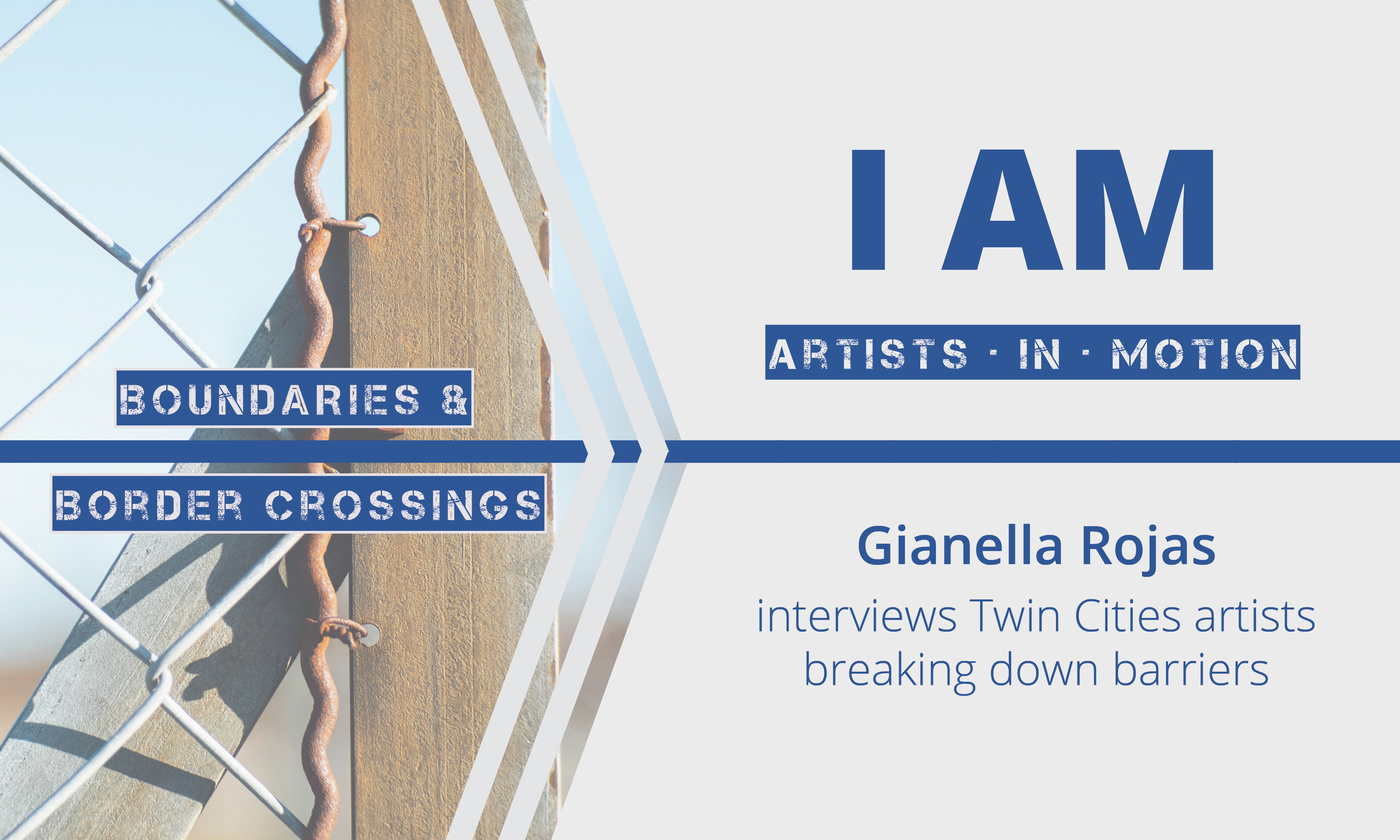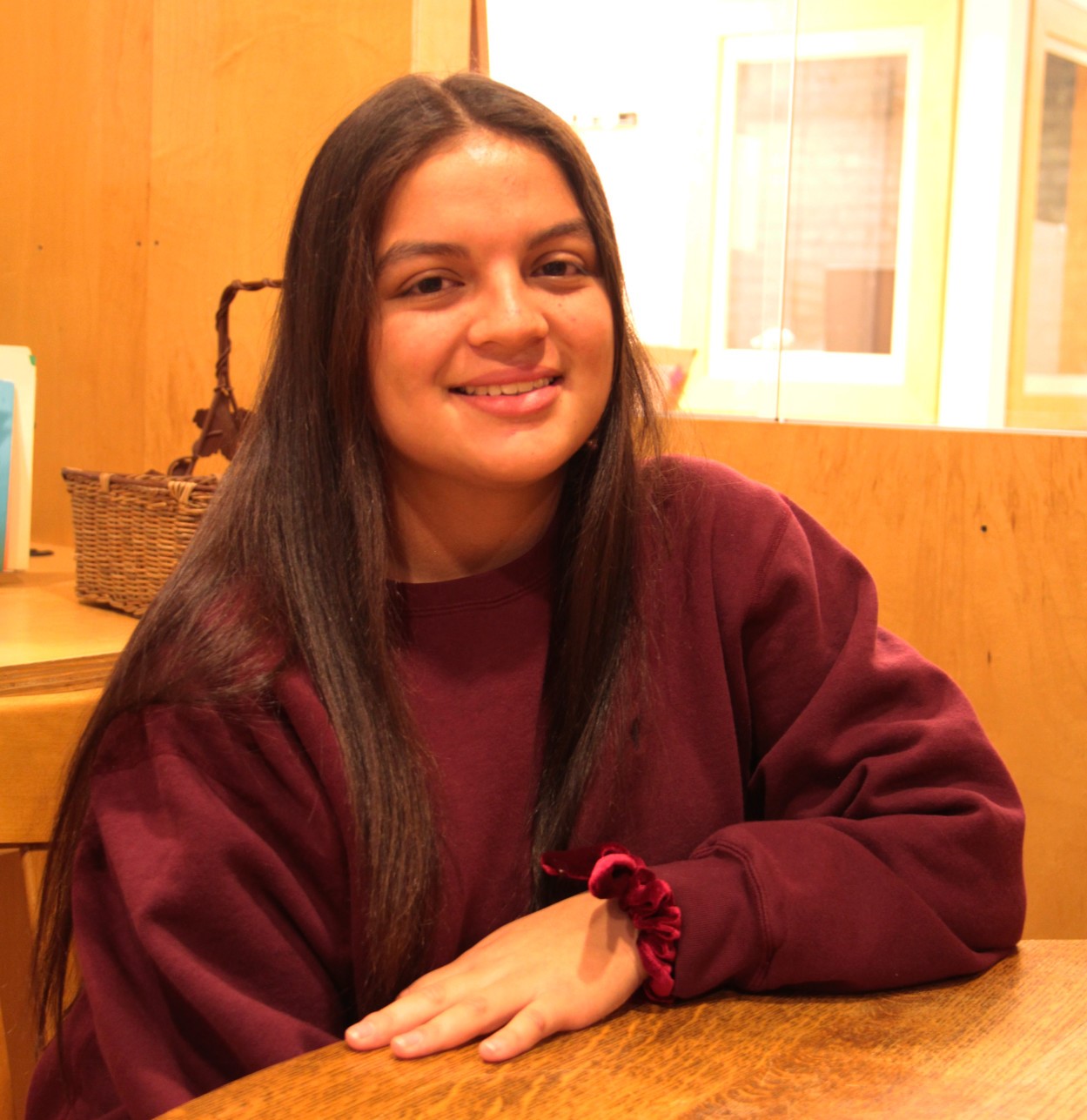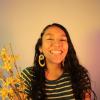Interview with Francisca Railef

I AM (Artist in Motion) is an interview series meant to spotlight indigenous artists and artists of color in the Twin Cities. I had the privilege of working at the Loft as the fall 2019 marketing and communications intern, and when they gave me the chance to work on a project of my choosing, I AM is the first thing I thought of.
The artists in this series were people I found truly inspiring. They incorporate art into their lives in many different ways and expressions, finding time whenever or wherever they can. They show how art can be a form of healing, understanding, and moving forward. I hope you take in their words and feel that for yourself.
________________________________________________________

Francisca Railef is a 16-year-old filmmaker, visual artist, and musician. Her documentary, which was about her Mapuche (an indigenous people native to Chile) heritage, was featured at Cine Latino, the Twin Cities' celebrated Latino Film Festival. She has participated in the CLUES Visiones Workshop, a Latino youth film program.
Who are you and what is your mode of storytelling?
I’m Francisca Railef. I’m 16. My form of storytelling, I guess, now is film. Before that, it was drawing and music. I’ve always been more of an artistic person.
How are these art forms a unique way of telling a story?
With music—that’s the biggest one—you can put all your emotion there. I think it’s just unique because everyone can somehow tell what you’re trying to say without any words or anything. Documentaries, I feel like you have more of a way to truly express everything just because you can talk, you can have more of a mood setting, also including music. I feel like all of them are unique because you don’t have to express everything in a way that everyone can know what’s going on, you just have to express it in a way you know what you’re saying.
What kind of music do you do?
I play a few instruments. In my school’s orchestra, I play the viola. I used to be in the band, so I play the clarinet. The biggest self-taught instrument I play is the ukulele.
Can you tell me a little about your documentary featured in Cine Latino?
It all started with the CLUES Visiones Workshop. I didn’t really know what I was getting into, but I was like, why not? It was supposed to be based on identity, and I wanted to base mine off my Mapuche side, which is an indigenous people native to Chile. You have everyone in CLUES who’s already Latino, so they all understand that side. I wanted to take it a step further and explain my indigenous side. It’s all about being proud of who you are and where your identity comes from. But also, I chose to do that because I didn’t know much about my indigenous side. It’s not something I talk about a lot or that my parents really taught me. We’re not over there, so I don’t have a way to learn it much. I think it was more of me wanting to learn more about that side, just being proud that I’m both Latina and Mapuche.
How did you get into filmmaking?
I was looking into careers that I wanted to go into for my future. My dad and I had been talking, and we started trying out every single thing that sounded interesting to me. At the time, I was looking into cinematography and the film industry because whenever I’ve done a film or video project in school, I’ve always liked it. My mom saw an ad on Facebook, and she was like, "You know what? Why not sign you up for this? This is a good way to try it out." So that’s how I got dragged into the film industry, and I loved it.
In the CLUES workshop, each student made their own documentary. They taught us how to use sound, how to do lights, editing everything. We basically produced everything, with some help from Ricardo.
How was the process of making your own film for the first time?
It was nerve wracking. I didn’t know what I was walking into. Once they said we were making a documentary and having a showing, I was like, "Oh my god, this is my first film!"
There’s a lot that goes into it. I didn’t know how to work a camera. I didn’t know how to work lights or the sound—like the microphone, I didn’t know how to work that. But at the end, on the cram dates we had, just putting everything together, it all made sense. It all went with the flow, in a way where you didn’t really know what you were doing, but you did it.
What is your process in creating your art?
I do bullet-point brainstorming. Once I get an idea, I go off. How can I make this idea happen? I start making different bullet points to put it all down. I have pages and pages of different ideas for everything. Then I’ll mix all of my ideas together to come to one. So for this video, it was like, I want to express my Mapuche side, I want to talk about the problems that are going on in Chile, with the Mapuches. I want to talk about how I’m Latina, which is an advantage and disadvantage in the US. But I’m also this, which puts another layer to everything else. I just mushed all these ideas into one.
What about sharing your video with people you know and don’t know?
At first, it was like, okay you kind of have to do it. So just get that in your head that it’s going to happen. But I think in the end, I felt very accomplished because I got that side of me out. I just felt more proud about that side too. When we did a Q&A at the end of the showing, with all the questions that were coming in, I was like, wow, people were actually very interested in my film. People actually cared about what I was saying. I did not think that was going to happen, but that was very cool.
How do your stories connect to your identity, and how do they help you connect to your community?
I talked about how there’s two different types of identity. There’s the base of your identity, what comes with you. You can’t really change that. You have to be proud about that, because it’s not something you can change. I feel like that’s all connected to everyone else, not just me. A lot of people aren’t proud that they’re immigrants or that they’re from somewhere else. I feel that really connected to everyone else because it at least opened the question in people’s minds: should I be doing something else with who I am?
Then there’s the type that you can change, which is your personality. I like soccer, or I like music, or I like to hang out with these people. But also the identity that’s more deep is where your parents come from, where you come from, how you look. You didn’t just get brown hair, brown eyes, from a lottery. It was for some reason.
Do you think this project helped you connect to your community?
I would say so. Just working with CLUES was a big connection. Once people see my film, I become friends with them, or I see their films. You understand them more, and you have something to talk about. Also just being a new filmmaker, giving tips and stuff like that.
Do you think being in school enhances or takes away from your art?
I think it does both. My school, at least, has a big music and art program. But that’s if you want to follow it. If you want to take away from everything else you can do in there. I do orchestra, so that already takes away an hour that I could be using to learn other things that I think are important too. Financial management, living on your own, other electives. We have tons of electives. You could go one way or another. We don’t have a lot of time in a day. Filled with homework, school, and homework. Nowadays, if you don’t do extracurriculars, you don’t get into a good school. If you don’t take AP classes, you don’t get into a good school. If you take AP classes, you get way more homework. Stuff like that. It blocks paths, but it still lets you take others. If you go more of the art way, we have a lot of electives. There’s still a lot open to us, but it’s not like we can take all of it in.
Why do you do what you do?
It brings out more opportunities for my future. I’m always thinking about my future. Any move I make, I'm thinking how it's going to help me later on. I picked this workshop because I’m trying to figure out what kind of career I’m going to follow. With this interview, I was like, this is a good opportunity. A lot of what I do is because of the opportunities that open up for me later on. They’re also once in a lifetime. It’s not everyday that people are going to tell you, you get to make a film, you get to do an interview, you get to meet this director.
How do you see art being part of your life moving forward?
I think it’s pretty open. I’m really liking film, but I don’t know what if it’s going to be a career I take yet, because there’s a lot of options!
Do all of them.
Who knows! Art is for sure going to be a part of me when I’m older. It’s very important to me, on how to express my feelings. I always know I’m going to be playing music. I’m still making little videos. And, it sounds really cringey, but I want to do a little vlog, acting like you’re a Youtuber. But it’s fun! Or like right now, I’m making a documentary about my dog. He just got neutered, so I was like you know what, I want to make a documentary about him. Why not?
A dogumentary!
Wow. I never thought about that!
You can use that.
I think it’s always going to be there. I don’t know in what shape or form, but it’s going to be there. It’s always been in my life. My mom, she used to paint a lot when I was younger. I would go to sleep, and she would be downstairs painting or doing ceramics. My aunt, she’s a graphic designer. She has a drawing account and does drawings for a newspaper. My brother, he also plays tons of instruments, and he’s actually the one who got me playing the ukulele. My grandpa, he’s this famous artist in Chile apparently. So art has always been something in my life, but I just took it to the next level. I feel it’s always something that’s going to be in my life even if it’s just a hobby. Maybe film’ll be something I focus more on. Who knows?
